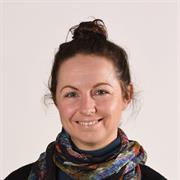Rutherford Fellowship: Adele Williamson
Discovering how bacteria replicate, repair and diversify their genomes in challenging environments.
Knowing what specialised enzymes bacteria use in challenging environments may allow us to identify vulnerabilities in bacterial pathogens that can be exploited as drugs, and to utilize these enzymes as biotechnological or diagnostics tools.
Adele Williamson has just been awarded a prestigous Rutherford Discovery Fellowship for the project: In extremis: how bacteria replicate, repair and diversify their genomes in challenging environments
This research will investigate novel DNA replication and repair proteins in three bacterial systems; the cyanobacterium Prochlorococcus marinus, which is the most abundant photosynthetic organism on the planet, accounting for 50% of marine photosynthetic biomass and fixing ~4Gt of CO2 per year; the infamously antibiotic-resistant pathogen Neisseria gonorrhoeae, which causes the disease gonorrhoea; and bacterial communities inhabiting the Martian-like Dry Valleys of Antarctica.
We will use computer algorithms to the predict DNA repair enzymes in the genomes of these super-survivor bacteria, and then we will artificially produce these enzymes in a pure form in the laboratory to test what they do. This involves determining what chemical reactions that they perform on damaged DNA and also how their 3-dimensional shapes allow them to interact with the DNA and recognize different DNA damages. To examine the specific role of the enzymes in the cell we will create genetic ‘knock-outs’ where the enzyme is eliminated, or ‘knock-ins’ where the enzyme is introduced into a mesophilic model bacterium and test how well these can survive DNA damaging conditions.
Read more information about Dr Adele Williamson and the followship on the Royal Society's website.

Senior Lecturer